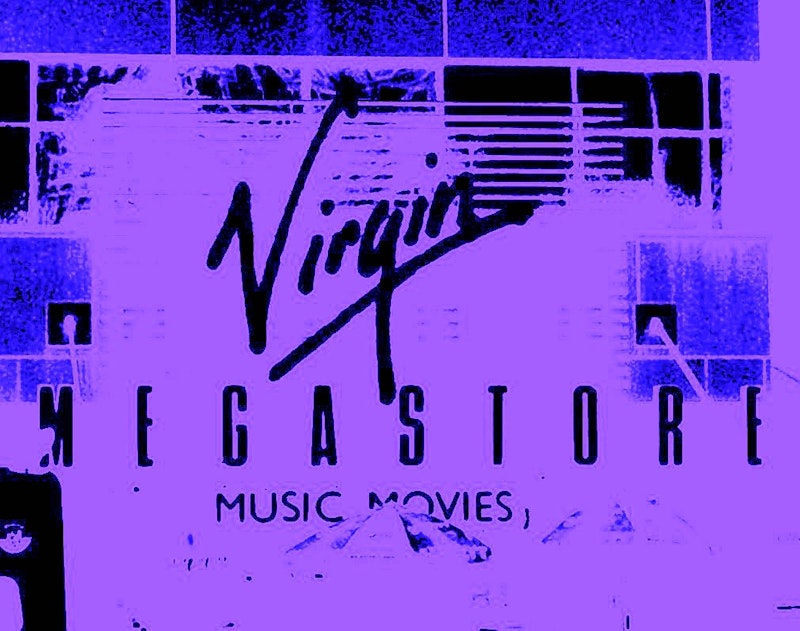Down the escalator and up went the last of the real customers, a couple of Port Authority workers looking deader than dead carrying copies of CrazySexyCool by TLC on cassette; a Walkman for CD’s was still a status symbol in 1996, and while Paul and Meredith might’ve had one—maybe—transit workers were still stuck with tapes. Hanging over the balcony, the masturbating angel from the cover of Mellon Collie and the Infinite Sadness looked out onto a vast store full of stuff and zero customers. But stuff, stuff: countless discs, cassettes, records, Laserdiscs, video game cartridges, posters, books, boxsets, stand-up displays, lobby cards. Although they had no idea, Paul and Meredith were living at the tail end of an Empire age, when Manhattan was the center of the universe, World Wars had been resolved, and people had money.
Of course, people still complained. The puritanical politics of the 1980s, along with its childish Madonna/whore complex, had been blasted away by Generation X, whose heroes, unlike those of the Boomers, actually belonged to Generation X. Among them: Kurt Cobain, Courtney Love, Billy Corgan, Elliott Smith, Quentin Tarantino, Bret Easton Ellis, David Foster Wallace, whose own Infinite Jest had enough pre-release hype that it too earned a stand-up display in a corner on the bottom floor of the Virgin Megastore, where the only books they sold were meant for coffee tables and toilet seats. But Meredith mentioned it as they descended the escalator, pointing out the gigantic cloudscape and the words “INFINITE/JEST/DAVID/FOSTER/WALLACE.” She poked Paul and asked, “What’s that?” He shrugged and said, “Maybe they’re making it into a movie soon.”
Infinite Jest still has yet to be made into a movie. But even if it did, I’m not sure it would earn a cardboard stand-up display in a massive media retail outlet: first, those stores don’t exist anymore. But more importantly, there isn’t a single book with enough hype now to justify any physical advertising. You won’t see a stand-up display for the new Sally Rooney novel. You won’t see a commercial for the new Ottessa Moshfegh collection. You’ll never see writers like Emma Cline, Anna Dorn, or Tao Lin on a talk show because there’s no audience for them, and without an audience, there’s no money. Paul and Meredith looked at the display briefly, before scanning the “books section” even quicker. Paul looked up and saw Meredith headed straight for the “HORROR” section.
He ran up to her, passing rows and rows of videotapes underneath half a dozen TV’s simulcasting the blizzard, and asked what she wanted. “What?” Paul didn’t mean to sound like he was, uh, offerin— “Yes, this. I want this. Can you buy it for me? I’m going to see the director tonight and I’d like to get it signed.” Paul looked at the box: Rapemaster, starring Brett Halsey. He looked up at her and she grabbed the tape and ran away, looking for a checkout counter, all before Paul could even ask, “…So who else is in it…?”
Meredith found a checkout counter—and no one behind it. No matter: Paul watched her open the register, ring up the purchase, leave exact change, print out her receipt, and grab a bag. She walked away even quicker, trying to avoid Golden Retriever Paul’s 20 Questions. “I don’t believe in shoplifting, Paul.” He nodded, about to say Me, neither, when Meredith continued: “And I wouldn’t date anyone who did.” They kept walking downstairs, through the horror section, and out in comedy, taking their time, still with 45 minutes to kill, one snowy night in New York City, January 1996.
—Follow Rooster Quibbits on Twitter: @RoosterQuibbits

